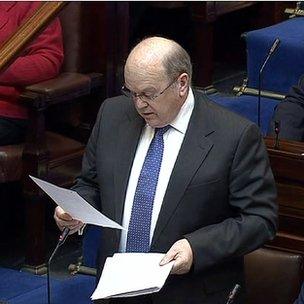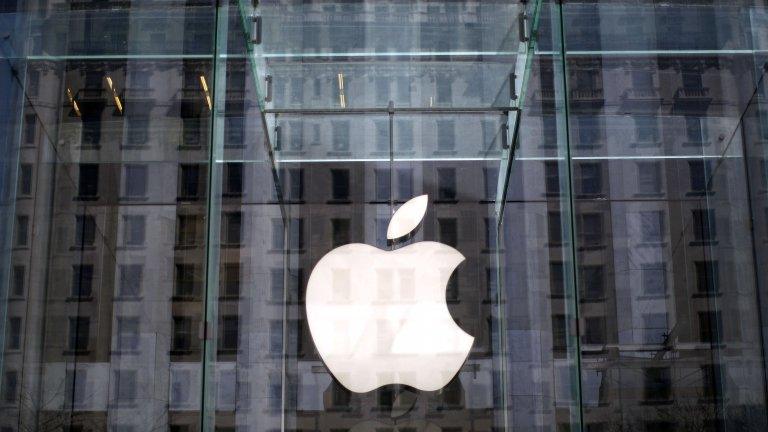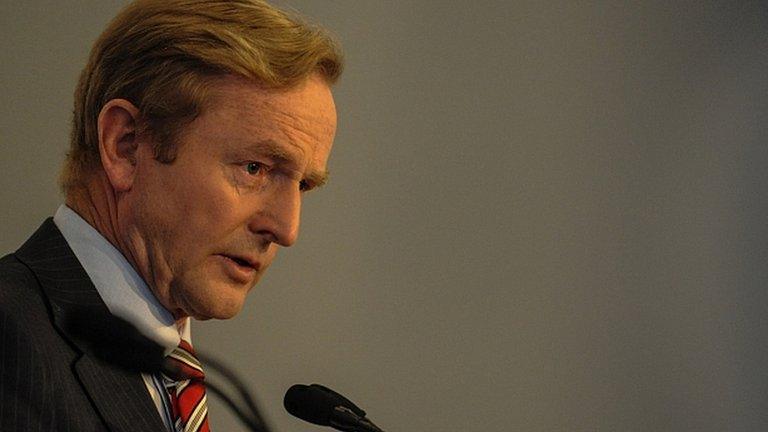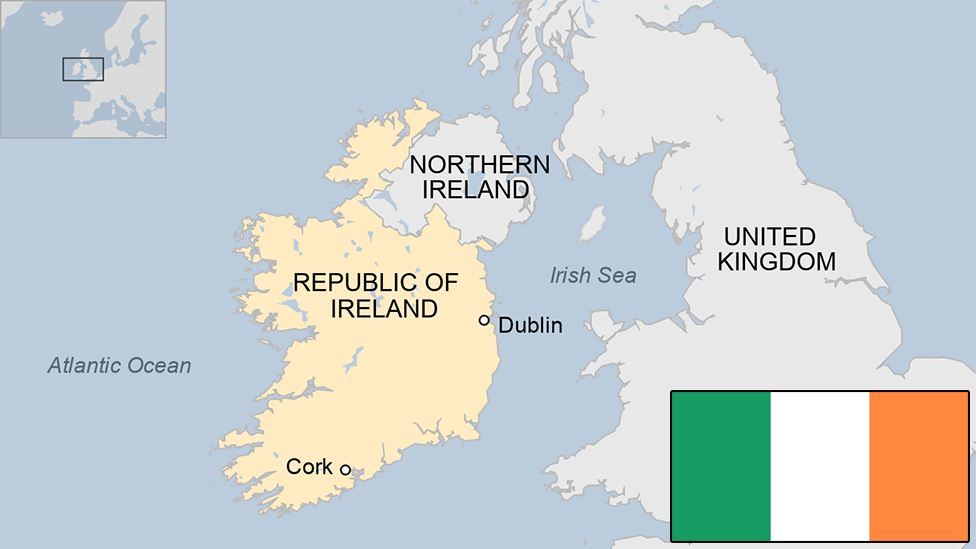Irish budget: Spending cuts and tax rises to save 2.5bn euros
- Published

Irish Finance Minister Michael Noonan delivered his budget speech to parliament on Tuesday
The Irish government has announced spending cuts and tax rises worth 2.5bn euros (£2.1bn) in what it hopes will be the final budget of the bailout era.
A number of social welfare benefits are to be withdrawn or reduced. A grant to help with funeral costs and a telephone allowance for pensioners have been cut.
The price of a pint of beer and a packet of cigarettes will both increase from midnight by 10 cents (8p).
The opposition accused the government of targeting the elderly in the budget.
The savings measures include a review of the Irish medical card system, which entitles eligible people to access certain health services free of charge.
The government said it aims to save 113m euros (£95m) by removing all "ineligible and redundant" medical cards, but the opposition said the changes would mean many pensioners would lose access to free health care.
There will also be greater restrictions on sickness benefit - the number of days a person must report sick from work before they are eligible to claim will double from three to six days.
Maternity benefit is being "standardised" for new claimants, in a move the government said will save 30m euros (£25m) over the next year.
However, the government is introducing free GP care for all children under five years of age, and has set aside 37m euros (£31m) to provide this new benefit.
The main opposition party, Fianna Fáil, said the medical card changes would badly affect 35,000 pensioners and accused the minister of "robbing grandparents so he can give free GP care to their grandchildren".
There will be no change to the state pension, child benefit or carers' allowances, and pensioners will still be entitled to free public transport and TV licences.
Finance Minister Michael Noonan said his government was "100% committed to the 12.5% corporation tax rate".
The Irish coalition had come under pressure from Europe to raise the business tax in the aftermath of the international bailout.
But Mr Noonan said the Republic of Ireland's corporation tax rate was a "settled policy" and "will not change".
The Irish economy is emerging from one of the deepest recessions in the eurozone, having sought an 85bn euros (£72m) international bailout in November 2010.
At the weekend, Irish Prime Minister Enda Kenny told his annual party conference the Republic of Ireland was on track to exit the bailout programme by December.
Mr Noonan introduced his budget by saying: "The story of insolvent Ireland is familiar to all our people and the sacrifices people have had to make in recent years are well known.
He said financial assistance from the IMF and the European authorities "came at a high price" as Ireland had "lost its sovereignty".
However, he said that Tuesday's budget was the first since 2007 to be delivered against a backdrop of rising employment.
"By the time the majority of the measures that I have announced today become law on the first of January next, I am confident that Ireland will have left the EU/IMF programme.
"We will have closed this chapter of Ireland's history that began for most of us with the governor of the Central Bank announcing to the Irish public that the country would be forced to turn to the lenders of last resort.
"There will be no promissory notes, there will be no Anglo Irish Bank and there will be no bank guarantee. We will have exited the programme and Ireland will have been handed back her purse."
Mr Noonan added: "We are well along the recovery path and it is time now, as a nation, to begin to look forward."
Fianna Fáil finance spokesperson, Michael McGrath, said: "We all hope the country is on the cusp of recovery but I believe it is too early too early to draw any definitive conclusions on that front."
He said: "This is a budget that targets the elderly, it targets those who hold medical cards, it targets young mothers, it abandons people struggling to kept their home, and yet again, incredibly, the government has gone out of its way to insulate the better off from the worst affects of this budget".
Mr McGrath criticised the withdrawal of the 850 euros (£718) bereavement grant and said the way that pensioners in particular had been treated in the budget was "nothing short of disgraceful".
"Not only will many of them now lose their medical card, they will have higher prescription charges, they will lose their telephone allowance, their bereavement grant is gone and Deposit Interest Retention Tax (DIRT) is going up.
"Even the dead, minister, are not safe from this government. As if it isn't enough to take a property tax from the estate of those who are deceased, but the modest grant that their loved one gets to given them the dignity of a decent burial is now being removed by this government," Mr McGrath added.
- Published15 October 2013

- Published15 October 2013

- Published12 October 2013

- Published7 February
